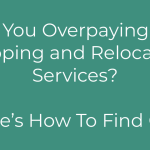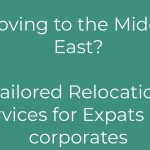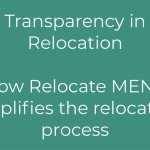Company Relocation To Saudi Arabia (KSA)
There has been a recent trend of companies moving their operations to Saudi Arabia. This is mainly due to the country’s economic reforms and efforts to attract foreign investment.
Several factors make Saudi Arabia an attractive destination for businesses. The country’s strategic location at the crossroads of Europe, Asia, and Africa provides a gateway to major markets. Additionally, the Saudi government has implemented several economic reforms, such as the privatisation of state-owned entities and the introduction of a new bankruptcy law, which has made it easier for businesses to operate in the country.
Furthermore, the country is home to a large and growing consumer market, which offers significant growth opportunities for companies. With a population of over 30 million, Saudi Arabia has one of the highest per capita incomes in the world and a strong appetite for luxury goods and services.
Companies Relocating to Saudi Arabia: Opportunities and Challenges
In recent years, several high-profile companies have announced plans to relocate to Saudi Arabia. For example, in 2021, SoftBank Group announced it would move its headquarters from Tokyo to Riyadh, citing the country’s “visionary leadership and long-term strategy.” Similarly, in 2020, Uber acquired local ride-hailing company Careem and established its regional headquarters in Dubai, which oversees operations in the Middle East, North Africa, and Pakistan.
Relocations to Saudi Arabia Expected to Increase
Overall, the trend of companies relocating to Saudi Arabia is expected to continue as the country continues to implement reforms and diversify its economy away from oil. As a result, Saudi Arabia is likely to become an increasingly important destination for businesses looking to expand their operations in the Middle East and beyond.
However, there are also challenges that companies may face when relocating to Saudi Arabia. For instance, the country’s legal system is based on Islamic law, which may differ significantly from the legal systems in other countries. Additionally, companies may encounter bureaucratic hurdles and cultural differences that could make it challenging to navigate local business practices.
To overcome these challenges, companies need to have a strong understanding of the local market and culture.
Tesla
In 2021, Tesla announced plans to establish a manufacturing facility in Saudi Arabia as part of the country’s efforts to develop a domestic electric vehicle industry. The plant is expected to produce up to 250,000 electric vehicles per year, creating thousands of jobs and contributing to the country’s economic diversification goals.
Amazon
In 2019, Amazon announced that it would open a new data centre in Saudi Arabia, becoming the first major tech company to establish a presence in the country. The move was seen as a significant endorsement of Saudi Arabia’s efforts to attract foreign investment and develop its digital infrastructure.
Hyundai
In 2018, Hyundai Motor Group signed a memorandum of understanding with the Saudi Arabian government to establish a joint venture to produce Hyundai vehicles in the country. The joint venture is part of Saudi Arabia’s efforts to develop a domestic auto industry and reduce its reliance on oil exports.
Pepsi
CoIn 2019, PepsiCo announced it would invest $345 million to build a new snack manufacturing facility in Saudi Arabia. The plant is expected to create over 1,000 jobs and produce a range of snack products for the local and regional markets.
Why Companies Are Moving to Saudi Arabia
With the country’s ongoing economic reforms and diversification efforts, we can expect to see continued interest from foreign companies in relocating or expanding their operations to Saudi Arabia.
Examples of Companies that Have Relocated to Saudi Arabia
Luxury companies have also been taking notice of Saudi Arabia’s growing consumer market and investing in the country. Here are a few examples:
LVMH
In 2020, LVMH Moët Hennessy Louis Vuitton opened its first luxury hotel in Saudi Arabia, the Cheval Blanc Randheli Resort in the Al-Ula region. The resort is part of a more significant effort by the Saudi government to develop the tourism industry in the country.
Cartier
In 2019, Cartier opened a new boutique in the Saudi capital of Riyadh, with three boutiques located in the country. The boutique features a range of luxury goods, including jewellery, watches, and accessories, and is designed to cater to the needs of Saudi Arabia’s affluent consumer market.
Chanel
In 2018, Chanel opened its first boutique in Saudi Arabia, located in the luxury shopping district of Riyadh. The store features a range of high-end fashion and beauty products and is part of Chanel’s larger strategy to expand its presence in the Middle East.
Gucci
In 2021, Gucci announced that it would be opening a new store in Jeddah, the second-largest city in Saudi Arabia. The store will feature a range of luxury goods, including clothing, handbags, and accessories, and is expected to cater to the country’s growing consumer market.
Luxury Companies move into Saudi Arabia
Luxury companies are recognising the potential of Saudi Arabia's affluent consumer market. They are investing in the country to take advantage of the growing demand for luxury goods and services. With the country's ongoing economic reforms and focus on developing its tourism industry, we can expect to see continued interest from luxury companies in expanding their presence in Saudi Arabia.
Challenges of Doing Business in Saudi Arabia
As part of its efforts to attract foreign investment and talent, Saudi Arabia has implemented several tax incentives for executives and professionals who relocate to the country.
Under the country’s “Special Privilege Iqama” program, foreign nationals can obtain a special residency permit that grants them a range of benefits, including the ability to own property, sponsor family members, and enter and exit the country without the need for a visa.
Tax Incentives for Executives and Professionals in Saudi Arabia
In addition, executives and professionals who obtain the Special Privilege Iqama are eligible for a range of tax incentives, including:
- Tax-free income
Executives and professionals who obtain the Special Privilege Iqama are exempt from paying income tax in Saudi Arabia.
- Reduced corporate tax
Companies that hire foreign executives and professionals who obtain the Special Privilege Iqama are eligible for a reduced corporate tax rate of 20%, compared to the standard rate of 50%.
- No capital gains tax
Executives and professionals who sell assets in Saudi Arabia are not subject to capital gains tax.
These tax incentives are designed to make Saudi Arabia an attractive destination for foreign talent and to encourage companies to relocate there. By offering tax relief for executives and professionals, Saudi Arabia is positioning itself as a business-friendly environment where companies can operate with a lower tax burden and attract top talent from around the world.
Despite these challenges, the benefits of relocating to Saudi Arabia are clear. The country’s growing economy, strategic location, and pro-business policies make it an attractive destination for companies looking to expand their operations in the Middle East and beyond.
As a result, we can expect to see continued interest from foreign businesses in relocating to Saudi Arabia in the years to come.
Considering Relocating to Saudi Arabia?
Talk to us today about how we can assist you with all aspects of your relocation journey. Our dedicated, friendly team offer multiple services related to company and employee relocation.










